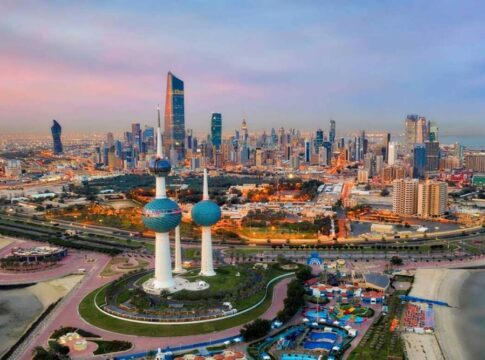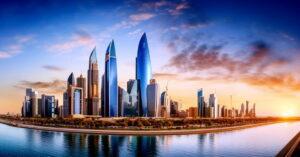Kuwait, a key member of the Organization of the Petroleum Exporting Countries (OPEC), has embarked on a bold journey to transform its infrastructure landscape with the approval of 35 major projects. Valued at an ambitious 15.6 billion Kuwaiti dinars (approximately $51 billion), these ventures aim to bolster the nation’s development over the next nine years, as reported by the Arabic language daily, Alqabas.
According to informed sources cited by the publication, 29 of these projects, collectively worth around KWD7.6 billion ($25 billion), are on track to be completed by the year 2030. Among the noteworthy undertakings is the construction of approximately 9,800 houses, with an investment of about KWD1 billion ($3.3 billion). This initiative not only addresses housing needs but also stimulates the local economy by creating job opportunities and enhancing living standards.
Another pivotal project involves the development of road infrastructure, earmarked at nearly KWD417 million ($1.4 billion). This initiative will improve connectivity across the nation, facilitating smoother transportation and boosting trade and commerce.
In a significant stride towards regional integration, Kuwait will construct a 111-kilometer rail line. This rail project is a critical segment of a larger plan to join the six-nation Gulf Cooperation Council’s rail network, fostering trade and travel efficiency across the Gulf states.
One of the largest projects within this ambitious plan is the development of the Mubarak Al-Kabeer Port. Scheduled for completion within four years, this port is expected to cost nearly KWD990 million ($3.2 billion). Once operational, the port will enhance Kuwait’s maritime capabilities, positioning the nation as a strategic trading hub in the region.
Beyond these projects, Kuwait’s developmental agenda aligns with its Vision 2035, which aims to diversify the economy and reduce dependency on oil revenues. The country is also investing in renewable energy projects, smart city initiatives, and technological advancements to create a sustainable and resilient future.
The approval of these infrastructure projects signifies Kuwait’s commitment to modernizing its facilities, improving its economic prospects, and enhancing the quality of life for its citizens. As these projects unfold over the coming years, Kuwait is poised to become a more connected, competitive, and sustainable nation in the Gulf region.



